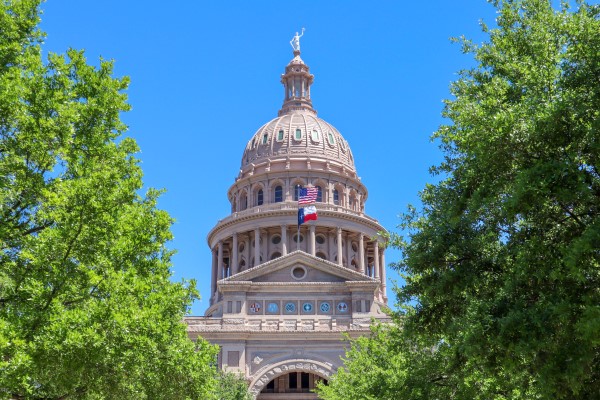Legislative Session Update: Week 13
Published Apr 05, 2019 by Taylor Landin
During the 86th Legislative Session, the Partnership will provide a weekly update on our top executive priorities and other newsworthy items from Austin.
Public school finance reform took center stage this week with the House passing House Bill 3, a $9 billion plan to reform public education funding, increase pay for educators and reduce property taxes. House Public Education Committee Chairman Dan Huberty (R-Kingwood) noted this was the first time in decades that the Legislature has taken on the challenge of passing major school finance reforms without a court order. HB 3 now heads to the Senate, which prioritizes the $9 billion for different education initiatives. The Legislature is running at full speed, with just eight weeks left before the end of the regular legislative session. A number of issues important to the business community, including flood resiliency, economic development programs and workforce development, remain on track.
PARTNERSHIP EXECUTIVE PRIORITIES
SCHOOL FINANCE REFORM
Before the school finance reform bill was passed by the House on Wednesday, the Legislative Budget Board released a financial analysis detailing the impact of the legislation on every school district in the state. Under the provisions of House Bill 3, all school districts received an increase in funding per student for fiscal years 2020 and 2021. The analysis also showed a substantial decrease in recapture payments across the state. If enacted, Houston ISD would see their recapture payments decrease from a projected $308 million in FY 2020 to $72.4 million, while also receiving an increase in funding of $454 per student.
After about six hours of relatively constructive debate on the bill and the consideration of 92 amendments, the House passed HB 3 with an overwhelming majority of 148-1. HB 3 allocates $6.3 billion in new state funding for public schools, including an increase to the basic allotment from $5,140 to $6,030. The legislation also includes strategic funding targeting high-need student populations, financial incentivizes for teachers to teach in the most economically-disadvantaged campuses or rural campuses, and $2.7 billion for an across-the-board local school district property tax compression.
The bill now moves to the Senate, where we expect Senate Education Committee Chairman Larry Taylor (R-Friendswood) will take up the House bill in committee. The bill may be heard as soon as next week.
WEEK IN REVIEW
Workforce Development
House Bill 3511 by State Representative Gary VanDeaver (R – New Boston), which creates the Commission on Texas Workforce, is gaining momentum in the Texas House. The commission will engage business and industry as partners with education institutions, state agencies, and local workforce system partners to build the state’s workforce and talent pipeline. The purpose of this commission is to improve the coordination and alignment of the education system to meet the needs of businesses and our dynamic economy. The bill was recently referred to the House Committee on International Relations and Economic Development, where it has been set for a hearing next Monday. Partnership staff has been working closely with the bill’s author and his staff to ensure smooth passage out of committee.
Eminent Domain
On Thursday, Senator Lois Kolkhorst’s (R-Brenham) eminent domain legislation, Senate Bill 421, was passed by the Senate after sweeping changes were made to the original bill. The legislation would impact large infrastructure projects, such as pipelines and utility lines, by adding significant requirements to the established eminent domain process. Despite extensive negotiations between industry and landowners, stakeholders have not yet reached agreement on several key provisions, including providing easement terms, holding landowner meetings, and establishing a basis for initial offers. The focus now turns to the House where negotiations continue.
Municipal Issues
The Senate State Affairs Committee heard more legislation this week which attempts to override an increasing patchwork of city ordinances governing employer-employee relationships and benefits. Senator Brandon Creighton (R-Conroe) filed three Senate bills with distinct strategies to address the issue. Senate Bill 2485 overrides all local ordinances affecting employer-employee relationships. Senate Bill 2486 prohibits local ordinances governing predictive scheduling. Senate Bill 2487 pre-empts local ordinances regulating leave policies. Despite Senator Creighton’s intentions, some concerns remain on how these proposals could negatively impact non-discrimination ordinances and Texas’ reputation as a welcoming state.
Sustainability – Air Quality
Proposals to reauthorize funding for the Texas Emissions Reduction Plan (TERP) took another step forward this week, as House Bill 1746 by Representative J.M. Lozano (R-Kingsville) was heard in the House Environmental Regulation Committee on Tuesday. The TERP program offers incentives to replace older, higher polluting vehicle engines and technologies with newer, cleaner alternatives to help meet EPA air quality standards. The program is strongly supported by businesses and environmental advocates. A similar bill in the Senate Committee on Natural Resources and Economic Development was heard last week and left pending in committee.
Health Care - CPRIT
Committees in both the House and Senate heard bills to reauthorize bonds for the Cancer Prevention and Research Institute of Texas (CPRIT). The program was established in 2007 to pursue innovative cancer research and prevention programs. CPRIT is credited with helping the Texas Medical Center become one of the top cancer treatment centers in the world. CPRIT’s ability to award funding is set to expire in 2022. House Bill 39 by House Appropriations Chairman John Zerwas (R-Richmond), and Senate Bill 438 by Senate Finance Chairwoman Jane Nelson (R-Flower Mound) will extend the program. The House Public Health Committee voted out HB 39 as well as House Joint Resolution 12 by Representative Zerwas, to continue the CPRIT program. SB 438 was left pending in the Senate Health and Human Services Committee but is expected to be voted out in the coming weeks.
Stay up-to-date with our Policy Team throughout the 86th Legislative Session by opting-in to this weekly update or follow the team on Twitter @GHP_Policy
 The Houston Report
The Houston Report


















